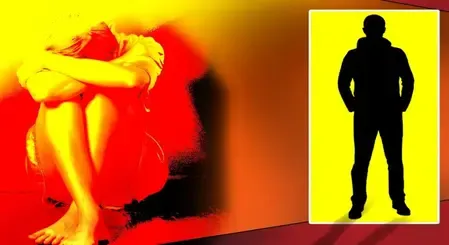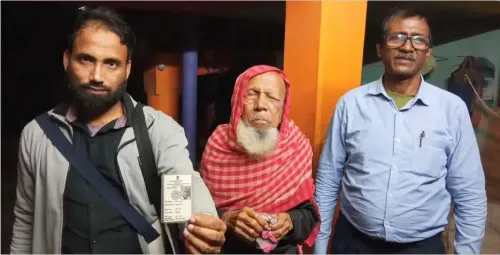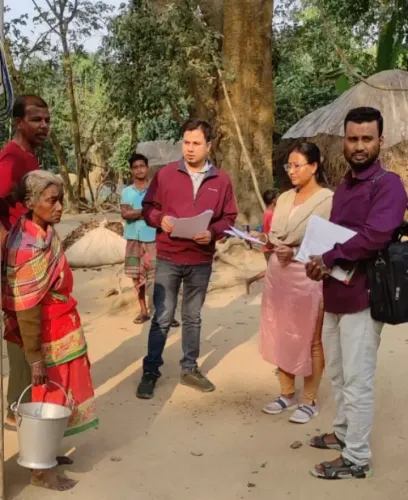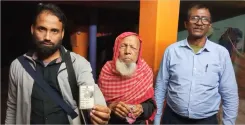Tamil Nadu Government Initiates Door-to-Door Leprosy Detection Drive

Synopsis
Key Takeaways
- Statewide campaign across Tamil Nadu
- Over 20,000 volunteers involved
- Targeting 133 rural blocks and 27 urban areas
- Focus on early detection and treatment
- Public cooperation is essential
Chennai, Feb 13 (NationPress) The Tamil Nadu Health Department has launched a comprehensive leprosy case detection drive across the state starting Thursday, aimed at identifying suspected cases. The initiative is set to run until February 28, with the support of over 20,000 volunteers performing thorough door-to-door screenings.
The campaign intends to reach out to 133 rural blocks and 27 urban areas throughout 37 districts.
As per Dr T.S. Selvavinayagan, the Director of Health Services in Tamil Nadu, 18,192 searchers will be engaged in screening in rural areas, while 4,332 searchers will focus on urban locations over the coming two weeks.
This campaign will also extend its efforts to schools, colleges, Mahatma Gandhi National Rural Employment Guarantee Scheme (MGNREGS) workers, members of self-help groups (SHGs), voluntary organizations, and government offices.
Leprosy is a communicable disease caused by the Mycobacterium leprae bacteria, which spreads through droplets from coughing or sneezing by untreated individuals. The disease typically has an incubation period of 5-7 years.
Dr Selvavinayagan remarked: “Leprosy appears when the immunity of the infected person diminishes. The first noticeable sign is a hypo-pigmented patch with a loss of sensation on the skin. With early detection, leprosy can be completely cured using multi-drug therapy (MDT).”
He cautioned that untreated leprosy could lead to severe complications, including peripheral nerve damage, which can cause deformities in the eyes, hands, and feet. The Leprosy Case Detection Campaign (LCDC) 2025 seeks to identify cases early, including those that are hidden, and ensure timely treatment.
Dr Selvavinayagan encouraged public collaboration with the searchers visiting their residences and urged individuals to volunteer for screenings. He highlighted Tamil Nadu's potential to eradicate leprosy by 2025. “Elimination does not equate to total eradication; it signifies reducing the disease to a point where it is no longer a public health issue. There should be no new deformity cases or childhood cases. Rehabilitation for individuals with leprosy-related deformities will persist,” he stated.
As a precautionary measure, post-exposure prophylaxis with a single dose of rifampicin will be provided when necessary. Furthermore, all school children will undergo screening by public health teams.
The health department advises the public to report any of the following symptoms to searchers for further assessment and follow-up at Primary Health Centres (PHCs): hypo-pigmented skin patches with loss of sensation, inability to close eyes, thickened earlobes and nodules, weakness or numbness in hands and feet, clawing of fingers and toes, muscle wasting in hands and feet, difficulty holding objects, and non-healing ulcers on hands and feet.
The Tamil Nadu Health Department calls for public participation and cooperation to ensure the effectiveness of this campaign and to help eliminate leprosy as a public health issue in the state.










